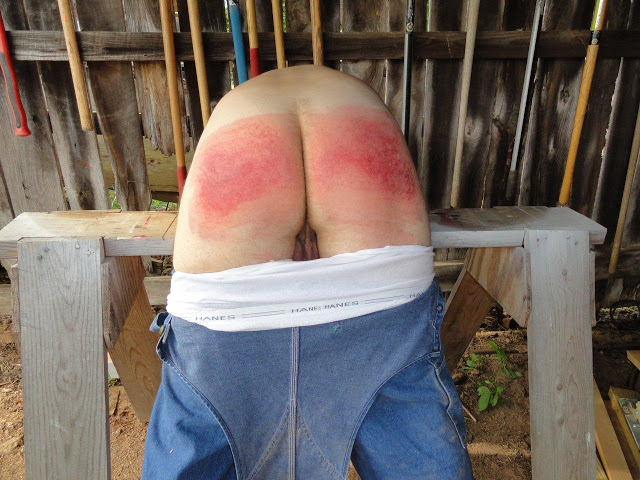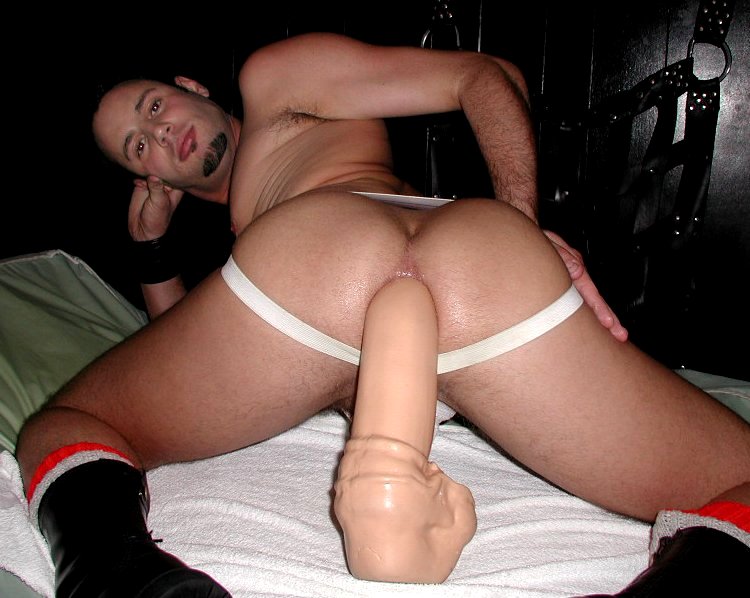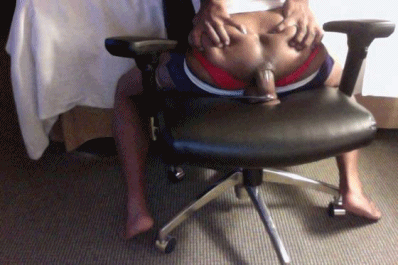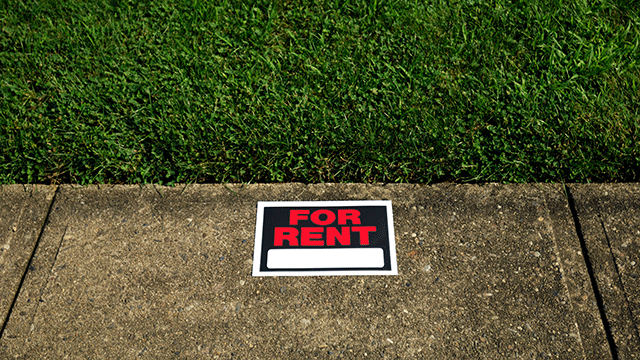A few more…
.jpg)
.jpg)
.jpg)
.jpg)
.jpg)
.jpg)

Wikipedia
Class Comics is an independent comic books publisher, originally founded in 1995 by Patrick Fillion as Class Enterprises, which specializes in gay erotic comics. Class Comics Inc. is now run by Fillion and his partner Fraser out of Vancouver, Canada. Fillion has written and illustrated most of Class Comics current catalogue.
Class Comics publishes nine titles: Guardians of the Cube, Satisfaction Guaranteed, Camili-Cat, Naked Justice, Rapture, Deimos, Porky, "Rainbow Country" and The Pornomicon.
Class Comics has introduced their comic and art book collections to the German and French audience through European Publishers Bruno Gmünder and H & O Editions.
Artists on the company include French Logan and Max, as well as Spanish Ismael Alvarez.
]
These would make good avatars as well.
.jpg)
.jpg)
.jpg)
.jpg)
.jpg)
.jpg)
Tall, lanky and Hot fucker!!! :thx:
:spank2: It turns out that quite a few of the animated gifs were too large to upload 







Hi Sye,
You probably remember me best as LBC from another site :hug:
The whole Spanking and Discipline bonding that is created between 2 men takes a certain kind of sexual maturity that most 19 year old's just would not understand or appreciate. I really think that was shown by his "not if I can't fuck you" statement ~ a real lack of sexual maturity. My second clue is the dancer/actor description ~ cliche but often true ~ they are very self centered to begin with and therefore I do not believe he could ever wrap his head around the complex sexual dynamic you desire.
The only option you have is to be very blunt about your desires and see if he is willing to give it a go both passive and active ~ at least from my perceived understanding of your desires. If he had a bad experience you have to explain that he was with a true Sadist who had no respect for boundaries. Explain in detail how things would and should work with you as his partner ~ he knows you are not that jerk at least by now. The risk of slowly breaking him into Spanking and Discipline considering his bad past experience could be dangerous for your relationship and his mental well being.
Sometime you have to risk it all to have it all.
Good luck and best wishes for success.
jazzanova was involved in a rather serious car accident recently and is recovering still at this point. I should have filled in for him sooner than this but I am here finally. Enjoy and I will maintain this SIG until jazzanova returns and we all on staff pray for his quick and easy recovery.







@ jamiecooper I do not know his name only he is 
A few more Stuffed Holes :cheers:







Justices Have Range Of Options On Gay Marriage
By MARK SHERMAN
WASHINGTON — The waiting is almost over.
Sometime in the next week or so, the Supreme Court will announce the outcomes in cases on California's Proposition 8 ban on same-sex marriage and the federal Defense of Marriage Act.
The federal law, known by the shorthand DOMA, defines marriage as the union of a man and a woman and therefore keeps legally married gay Americans from collecting a range of federal benefits that generally are available to married people.
The justices have a lengthy menu of options from which to choose. They might come out with rulings that are simple, clear and dramatic. Or they might opt for something narrow and legalistic.
The court could strike down dozens of state laws that limit marriage to heterosexual couples, but it also could uphold gay marriage bans or say nothing meaningful about the issue at all.
A look at potential outcomes for the Proposition 8 case and then for the case about DOMA:
Q. What if the Supreme Court upholds Proposition 8?
A. This would leave gay Californians without the right to marry in the state and would tell the roughly three dozen states that do not allow same-sex marriages that there is no constitutional problem in limiting marriage to a man and a woman.
Such an outcome probably would trigger a political campaign in California to repeal Proposition 8 through a ballot measure, which opinion polls suggest would succeed, and could give impetus to similar voter or legislative efforts in other states. Proposition 8 itself was adopted by voters in 2008, but there has been a marked shift in Americans' attitudes about same-sex marriage in the past five years.
Q. What if the court strikes down Proposition 8?
A. A ruling in favor of the two same-sex couples who sued to invalidate the gay marriage ban could produce one of three possibilities. The broadest would apply across the country, in effect invalidating constitutional provisions or statutes against gay marriage everywhere.
Or a majority of the justices could agree on a middle option that applies only to California as well as Colorado, Hawaii, Illinois, Nevada, New Jersey and Oregon. Those states already treat gay and straight couples the same in almost every respect through civil unions or domestic partnerships. The only difference is that gay couples there are not allowed to marry.
This so-called seven-state solution would say that the Constitution forbids states to withhold marriage from same-sex couples while giving them all the basic rights of married people. But this ruling would not implicate marriage bans in other states and would leave open the question of whether states could deprive gay couples of any rights at all.
The narrowest of these potential outcomes would apply to California only. The justices essentially would adopt the rationale of the federal appeals court that found that California could not take away the right to marry that had been granted by the state Supreme Court in 2008, before Proposition 8 passed.
In addition, if the Supreme Court were to rule that gays and lesbians deserve special protection from discriminatory laws, it is unlikely that any state ban on same-sex marriage could survive long, even if the justices don't issue an especially broad ruling in this case.
Q. Are there other potential outcomes?
A. Yes, the court has a technical way out of the case without deciding anything about same-sex marriage. The Proposition 8 challengers argue that the private parties defending the provision – members of the group that helped put the ban on the ballot – did not have the right to appeal the trial judge's initial decision striking it down, or that of the federal appeals court.
The justices sometimes attach great importance to this concept, known as "standing". If they find Proposition 8's proponents lack standing, the justices also would find the Supreme Court has no basis on which to decide the case.
The most likely outcome of such a ruling also would throw out the appeals court decision that struck down the ban but would leave in place the trial court ruling in favor of same-sex marriage. At the very least, the two same-sex couples almost certainly would be granted a marriage license, and Gov. Jerry Brown, D-Calif., who opposes Proposition 8, probably would give county clerks the go-ahead to issue marriage licenses to same-sex couples.
Q. Are the possibilities for the DOMA case as complicated?
A. No, although there are some technical issues that could get in the way of a significant ruling.
Q. What happens if the court upholds Section 3 of DOMA, defining marriage for purposes of federal law as the union of a man and a woman?
A. Upholding DOMA would not affect state laws regarding marriage but would keep in place federal statutes and rules that prevent legally married gay Americans from receiving a range of benefits that are otherwise available to married people. These benefits include breaks on estate taxes, health insurance for spouses of federal workers and Social Security survivor benefits.
Q. What if the court strikes down the DOMA provision?
A. A ruling against DOMA would allow legally married gay couples or, in some cases, a surviving spouse in a same-sex marriage, to receive benefits and tax breaks resulting from more than 1,000 federal statutes in which marital status is relevant. For 83-year-old Edith Windsor, a New York widow whose case is before the court, such a ruling would give her a refund of $363,000 in estate taxes that were paid after the death of her spouse, Thea Spyer. The situation could become complicated for people who get married where same-sex unions are legal, but who live or move where they are not.
Q. What procedural problems could prevent the court from reaching a decision about DOMA?
A. As in the Proposition 8 case, there are questions about whether the House Republican leadership has standing to bring a court case to defend the law because the Obama administration decided not to.
House Republicans argue that the administration forfeited its right to participate in the case because it changed its position and now argues that the provision is unconstitutional.
If the Supreme Court finds that it does not have the authority to hear the case, Windsor probably would still get her refund because she won in the lower courts, but there would be no definitive decision about the law from the nation's highest court and it would remain on the books. It is possible the court could leave in place appeals court rulings covering seven states with same-sex marriage: Connecticut, Maine, Massachusetts, New Hampshire, New York, Rhode Island and Vermont.

By BURGESS EVERETT
Lisa Murkowski endorsed the right of gay couples to marry on Tuesday, joining Rob Portman and Mark Kirk as the third Republican senator to do so.
The Alaskan senator announced the news in comments to Anchorage TV station KTUU on Wednesday morning and in a long commentary posted on her website. Murkowski told POLITICO that it was no overnight epiphany.
“I didn’t just wake up and say: ‘Oh my gosh I’m going to do this. No, it’s something that I’ve been giving a lot of thought to over a long period of time,” Murkowski said.
The senior Alaska senator said she was not trying to persuade any of her colleagues to change their position and said she had not yet talked to Kirk or Portman.
In her op-ed, Murkowski said she was influenced by a military family headed by two women who had opened their doors to foster children. But, Murkowski said, “our government does not meet this family halfway and allow them to be legally recognized as spouses.”
Murkowski’s changed course as Capitol Hill braces for rulings on a pair of same-sex marriage cases. She noted that 15 years ago she supported a constitutional amendment defining marriage as between a man and a woman but has now realized that “same sex unions or civil marriages are consistent with the independent mindset of our state.”
She said in March that her views on the subject were “evolving.”
“I am a life-long Republican because I believe in promoting freedom and limiting the reach of government. When government does act, I believe it should encourage family values,” Murkowski wrote Wednesday. “I support the right of all Americans to marry the person they love and choose because I believe doing so promotes both values: it keeps politicians out of the most private and personal aspects of peoples’ lives – while also encouraging more families to form and more adults to make a lifetime commitment to one another.”
Murkowski portrayed support for gay marriage as support for smaller government and less federal intrusion and said it was in line with long-held Republican values.
“Like Reagan, Alaskans believe that government works best when it gets out of the way. Countless Alaskans and Americans want to give themselves to one another and create a home together. I support marriage equality and support the government getting out of the way to let that happen,” Murkowski wrote.
Murkowski’s support for same-sex marriage is sure to set off a wave of speculation on which Republican senator will be next to join her, Portman and Kirk. The vast majority of Senate Democrats also support the right of gay couples to marry, excepting some red-state Democrats.
It’s not clear if Murkowski’s position has influenced any of her colleagues: Sen. Mark Pryor (D-Ark.), who is up for reelection in 2014, told POLITICO his position against gay marriage remains unchanged.
Alaska’s other senator, Democrat Mark Begich, told POLITICO that Murkowski’s announcement both showed Alaska’s independence — and that it’s a new era for social issues like gay marriage.
“If you’re a Republican, maybe they’ll see that as a signal, you know, that times have changed,” Begich said. “I’ve been supportive of this issue for some time. To have her now announce again shows Alaska has a bipartisan approach to many issues. And this is another.”
The news was cheered by the Human Rights Campaign as “courageous and principled” — and also timely.
“As the Supreme Court prepares to rule in two landmark marriage cases this month, a growing bipartisan coalition is standing up for the right of all couples to marry—and there is no turning back that tide,” said HRC President Chad Griffin.

A new study by HUD, which finds that same-sex couples trying to rent an apartment are subject to greater discrimination than heterosexual couples.
By ALAN FARNHAM
June 19, 2013
Same-sex couples face greater discrimination when looking for a place to rent than do heterosexual couples, a new federal study finds.
"An Estimate of Housing Discrimination Against Same-Sex Couples," released by the U.S. Department of Housing and Urban Development (HUD), is the first analysis of its kind, according to the agency.
According to the study, not only are same-sex couples discriminated against, but gay male couples face greater discrimination than do lesbian couples.
The Fair Housing Act makes it illegal to discriminate in rental sales and lending on the basis of race, color, national origin, religion, sex, disability and familial status. It does not, however, prohibit discrimination on the basis of sexual orientation or gender identity, as these are not protected classes under the Act.
Straight couples were favored over gay male couples 15.9 percent of the time; straight couples were favored over lesbians 15.6 percent of the time, according to the study.
The study measured the treatment same-sex couples received from rental agents when making email inquires about apartments advertised online, as compared to straight couples.
The study was based on nearly 7,000 email tests conducted in 50 metropolitan markets across the U.S. between June and October 2011. In each test, a pair of emails were sent inquiring about the listing. The only difference between the two was that one purported to come from a same-sex couple, and the other from a heterosexual one. The difference in treatment was measured, according to HUD, by whether or not the applicant was told the unit was available, asked to contact the landlord, invited to see the apartment, or given any response at all.
While federal law does not define gay or lesbian couples as a protected class in such situations, the laws of 21 states do. An ironic finding of the HUD study was that greater discrimination against same-sex couples exists in states whose laws forbid it than in states whose laws do not.
Why might that be the case?
A HUD researcher said he wasn't sure. "We don't know why," he tells ABC News. "I will say, the difference is very small." Nonetheless, he says, the Department's hypothesis, starting out, was that they would find the opposite.
Asked if a gay or lesbian couple could use the HUD report as a kind of "shopping guide" to help identify those metro areas around the country friendliest to same-sex renters, the HUD official said no, that they could not. Reason: There aren't large differences, metro-to-metro. There are, though, some regional differences. The degree of discrimination, he says, is slightly higher in the South.
HUD Secretary Shaun Donovan, in a statement released with the report, said, "This study shows we need to continue our efforts to ensure that everyone is treated the same, when it comes to finding a home to call their own, regardless of their sexual orientation."
Bryan Greene, HUD Acting Assistant Secretary for Fair Housing and Equal Opportunity, said in the same statement: "A person's sexual orientation or gender identity should not be a reason to receive unfavorable treatment when searching for housing. HUD is committed to making sure LGBT individuals have equal access to housing opportunities."
Is it possible to compare rental discrimination against same-sex couples to, say, discrimination against couples who may be Native American, disabled, colorblind or named 'Smith'? No, says the HUD official. The same-sex study was based on email responses only. Past studies of rental discrimination against other categories of applicants have been based on in-person tests: Somebody representative of the protected class shows up at a building and asks to rent; the landlord or rental agent's verbal or physical response (including door-slamming) is then noted.
In-person tests for discrimination against same-sex couples are scheduled for next year, says HUD.

From Russian Anti-Gay Bill
In a letter sent to the International Olympic Committee yesterday, the New York City based Human Rights Watch organization expressed growing concern that Russia's new antigay law may indeed be used to target LGBT Olympians during the upcoming 2014 Olympics in Sochi. While the IOC issued a statement earlier this week attempting to quell such fears, HRW is pushing for further clarification and is demanding the IOC take proactive steps to ensure discrimination does not occur:
"Although news reports this week quoted a spokesman saying that the IOC is "concerned" about the draft law being passed and reiterated the IOC's "long commitment to non-discrimination against those taking part in the Olympic Games," we urge the IOC to take additional steps to send a clear signal to the Russian authorities that discrimination of people based on their sexual orientation and gender identity is sharply at odds with Russia's human rights and Olympic commitments.
We also encourage you to obtain guarantees from the Russian authorities that no homophobic legislation will be adopted or implemented and that the authorities will refrain from any additional discriminatory legislative initiatives or policies that discriminate against lesbians, gays, bisexual, and transgender people. We also urge you to press the authorities to state publicly that, as Olympic Host, Russia will ensure, without distinction, the safety and the freedom of expression and association of all athletes, coaches, fans, and others who will attend the Sochi Games."
The letter comes on the heels of a Russian LGBT group calling for a boycott of the Sochi Olympics. In its current form, the homophobic draft law applies not only to Russian citizens, but to anyone who publicly addresses homosexuality while in Russia. Foreigners - possibly including athletes - who violate the law, such as speaking about their sexual orientation in public, run the risk of being fined, arrested for up to 15 days, and deported from Russia.
From : Towelroad